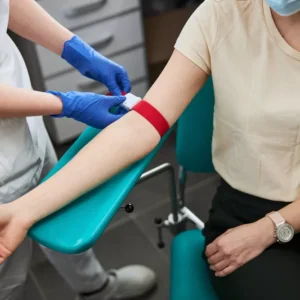Whether it’s the uterus, skin, breast, lungs or colon… each cancer has its own screening test. Find out which ones.
Screening for better treatment
Getting tested regularly allows you to diagnose certain cancers early enough, even before the appearance of symptoms. This helps to provide better care and limit the after-effects of treatment. In some cases, screening helps prevent the appearance of cancer by treating an abnormality.
Screening is for everyone. For women, between 50 and 74 years for breast cancer or between 25 and 65 for cervical cancer. For men and women, between 50 and 74 years for colon or rectal cancer.
There are different types of tests. It could be :
- From a radiological examination such as mammography ;
- An examination of cells under the microscope like a cervical smear;
- A search for abnormal bleeding in the digestive tract for polyps and cancers of the colon and rectum;
- A clinical examination for skin cancers;
- A screening by scanner spiral for lung cancer screening;
- Prostate cancers can be detected by the PSA (Prostate Specific Antigen) test.
Screening is used to detect precancerous or cancerous lesions at a very early stage. Different examinations exist, depending on the targeted area. Cancer detected early enough will be treated more quickly, increasing the chances of recovery.
Cancer: the signs that should alert you
Even if you perform screenings regularly, it is important to remain alert for the appearance of certain symptoms. These are not always indicative of cancer. They may be the consequence of another illness. However, it is important to monitor them and not neglect them.
This could be:
- Unexplained pain or pain that does not go away;
- Respiratory or mouth problems: shortness of breath, persistent bloating, digestive problems, heartburn, urinary problems, etc.;
- Of bleeding. They can be vaginal, in the stools, in the urine, expelled by coughing, etc.;
- Physical changes: breast change, unexplained weight loss, appearance of a lump, new mole, difficulty swallowing, severe night sweats, etc.
These symptoms should lead you to consult a healthcare professional. He may prescribe additional tests to determine the origin.

Health journalist
June 13, 2024, at 11:09 a.m.
Was this article helpful to you?










